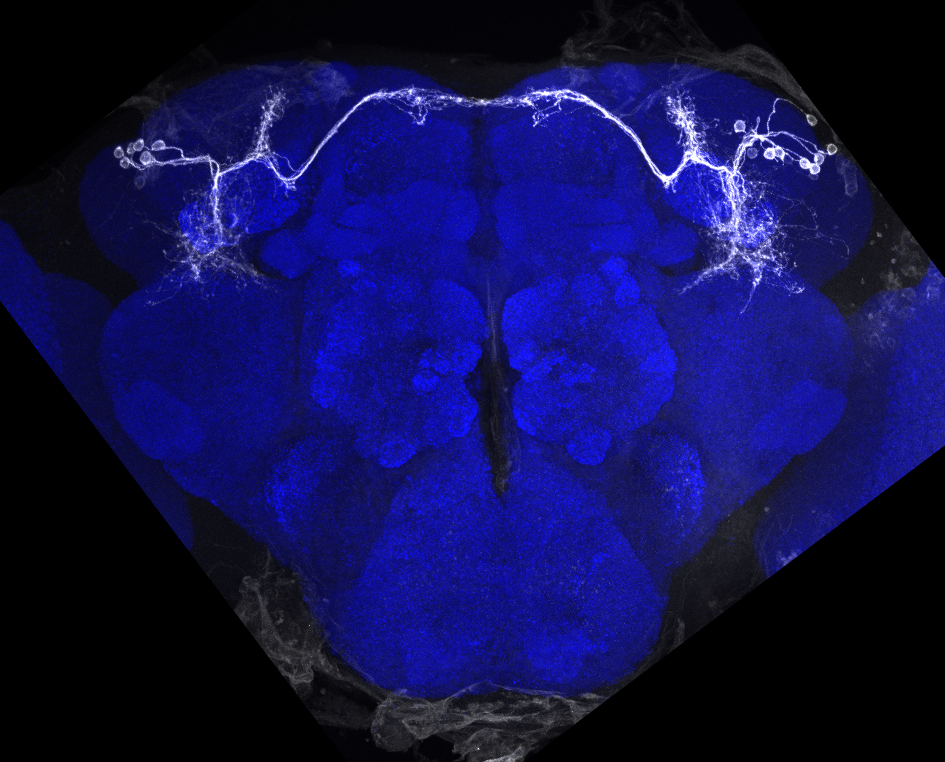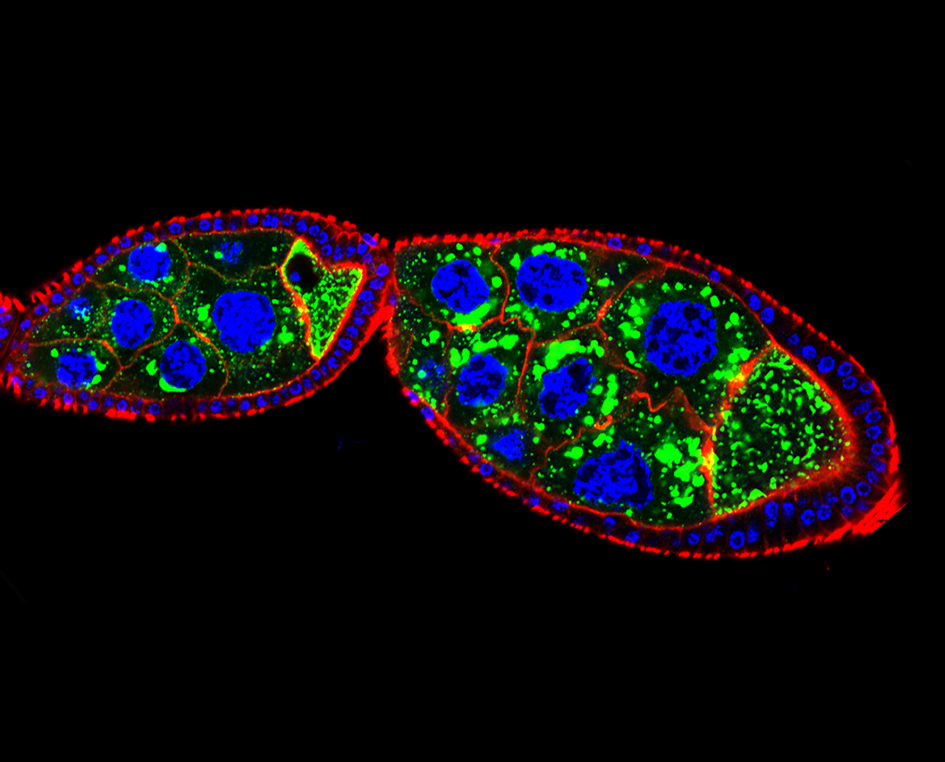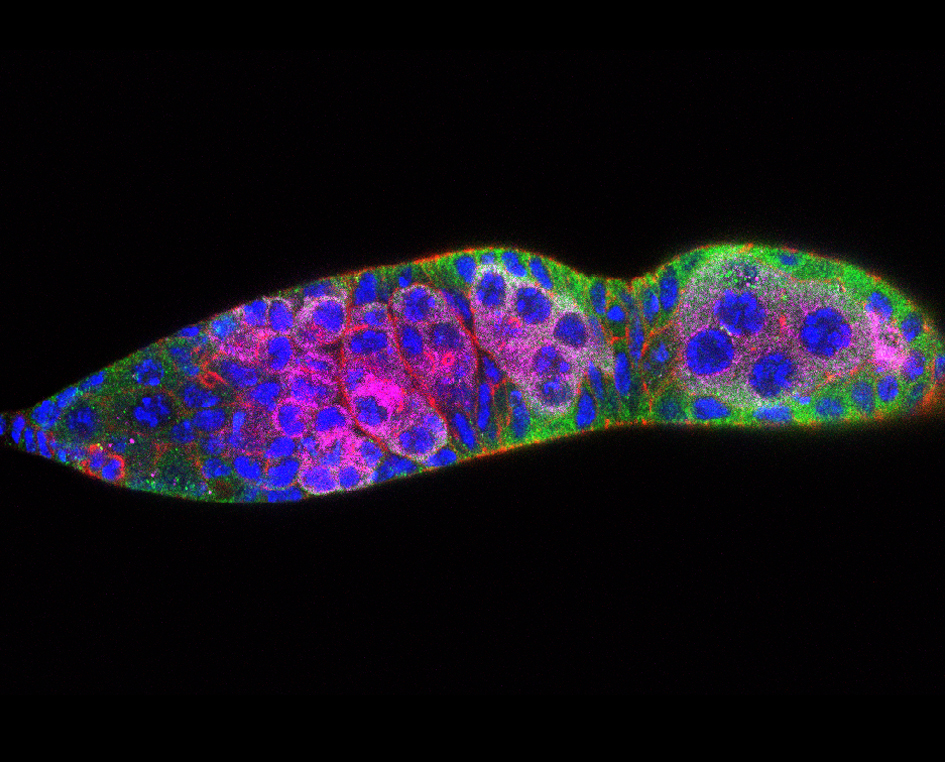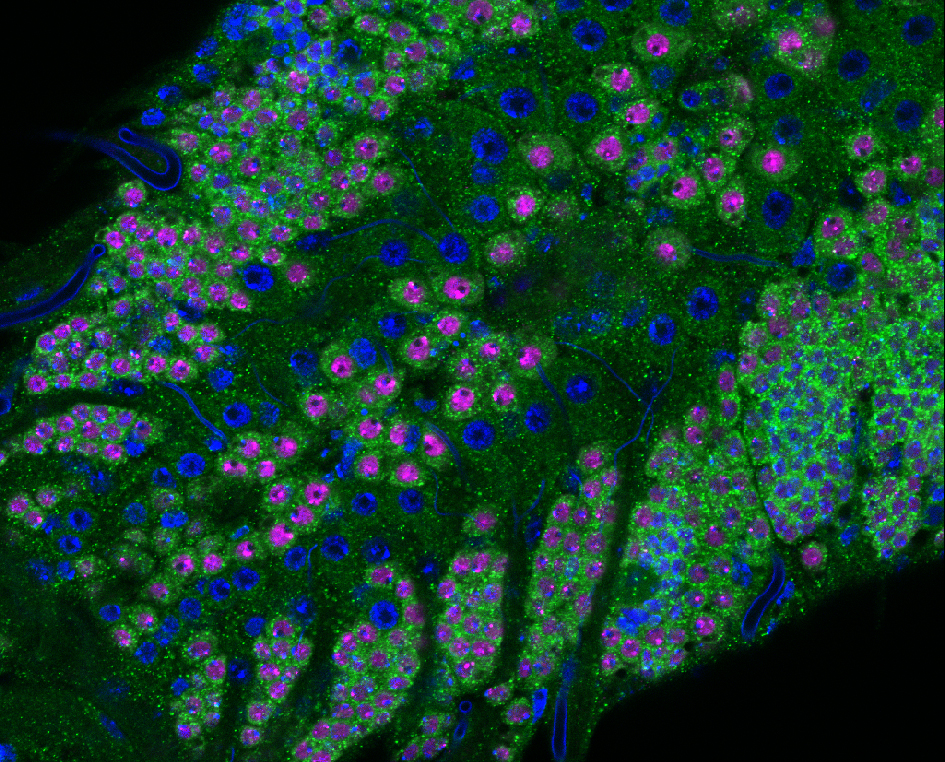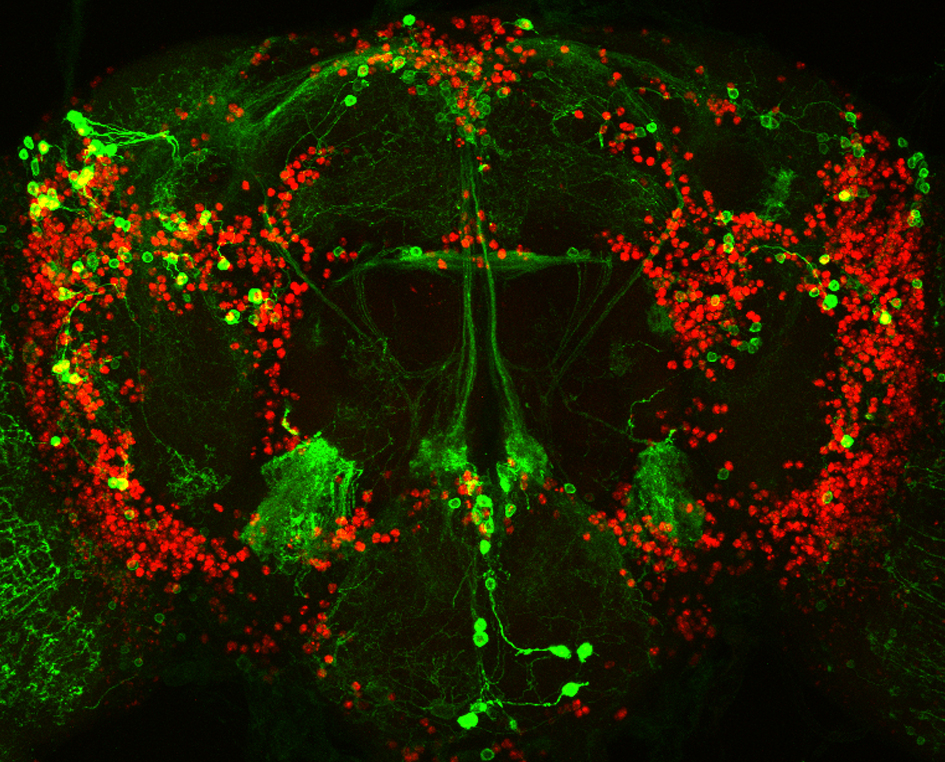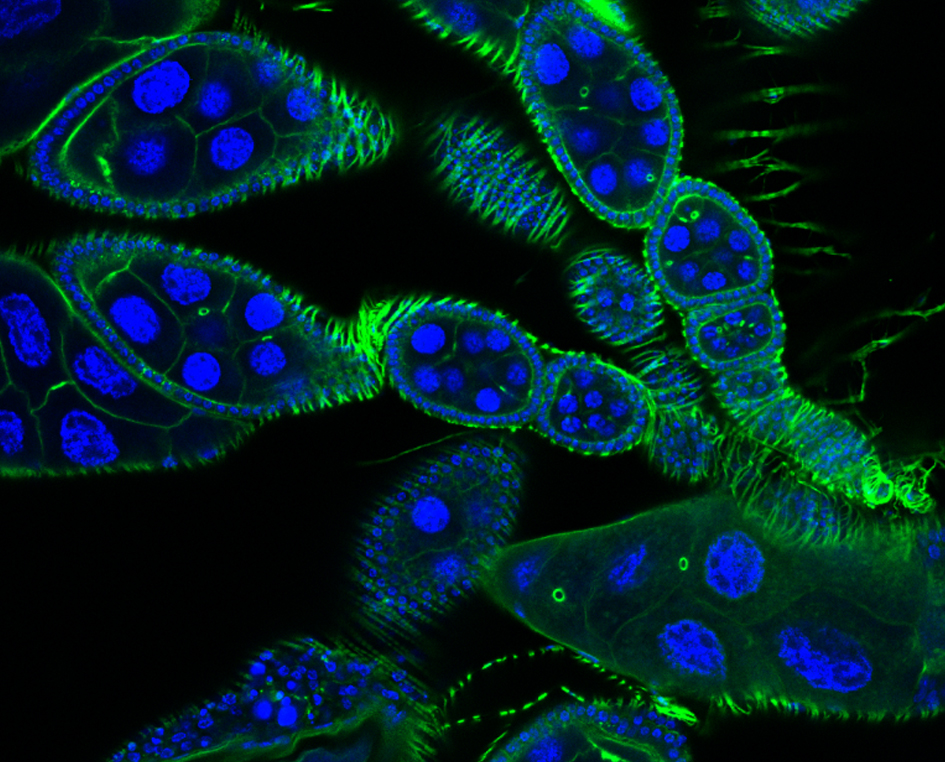ABOUT THE CONFERENCE
This traditionally biannual meeting comes back in its twentieth edition after a break due to the covid pandemic.
The aim of this meeting is to gather researchers working in Italy at all career stages that use Drosophila melanogaster as model organism across research fields.
This meeting promotes exchange of results, ideas, expertise and tools in a friendly setting, and constitutes an important occasion to establish new collaborations or consolidate existing ones. It also provides the possibility for Italian drosophilists working abroad to share their experience with colleagues in Italy.
Program Committee
Thomas Vaccari University of Milan
Simona Polo IFOM ETS and University of Milan
Erika Donà CNR - Institute of Neuroscience
Program
Registration
Keynote 1 - Prof.Dr.Aurelio Teleman, DKFZ, Heidelberg, Germany
Regulation of tissue size
Session 1 - Mechanisms of tumorigenesis
Chair - Andrea D’Alessandro & Valeria Specchia
Anna Frappaolo, IBPM CNR, Rome
GOLPH3 protein controls organ growth by interacting with TOR signaling proteins in Drosophila
Simona Totaro, University of Milan, Milan
In vivo effects of pharmacologic and genetic PARP inhibition on Cohesinmediated phenotypes using Drosophila melanogaster
Giulia Tesoriere, University of Rome La Sapienza
Vitamin B6 deficiency cooperates with oncogenic ras to induce malignant tumors in Drosophila
Susumu Hirabayashi, MRC Laboratory of Medical Sciences, London, UK
Exploring host-tumour metabolic interactions
Coffee Break
Session 2 - Environment,physiology and disease
Chair - Giulia Tesoriere & Alessia Soldano
Maria Dolores De Donno, University of Salento, Lecce
SAPK signalling activation and functional impairment in cadmium stressed fly brains
Patrizia Morciano, University of L’ Aquila, L’ Aquila
In vivo underground radiobiology at INFN-Laboratori Nazionali del Gran Sasso
Simona Del Quondam , Tuscia University, Viterbo
Modeling of second-generation antipsycotic-induced metabolic alterations in the fruit fly Drosophila melanogaster
Nadia Ceccato, University of Padua, Padua
Drosophila melanogaster as a model to investigate the link between circadian clock and neurodegenerativedisorders
Luca Valzania, Institut Curie, Paris
A temporal allocation of amino acid resources ensures fitness and body allometry
Social dinner
Session 3 - Shaping the nervous system
Chair - Nadia Ceccato & Laura Ciapponi
Alessia Soldano, SISSA,Trieste
Deciphering the role of the epitranscriptomic modification m6A in glia during brain development
Erika Donà, CNR IN, Milan
Mapping the developmental transcriptomic atlas of the nerve cord to its connectome
Maria Patrizia Somma, CNR-IBPM, Rome
Chromatin alteration and lamin dysfunction in primary microcephaly Drosophila models
Simona Polo, IFOM, Milan
HECW1: navigating the nexus of neurodevelopment and neurodegeneration
CoffeeBreak
Session 4 - Neurodegeneration
Chair - Liliana Tullo & Luca Valzania
Ruben Cauchi, University of Malta, Msida
Linking Genetic Risk Factor SCFD1 to ALS Pathophysiology
Laura Ciapponi, University of Rome, Rome
Suv3-9 mediated methylation controls Age-Related TDP-43 Decline, Triggering neurodegeneration
Davide Colaianni, University of Padua, Padua
miR-210 is essential to retinal homeostasis in fruit flies and mice
Giuliana Cesare, University of Milan, Milan
The role of the E3 ubiquitin ligase Hecw in autophagy
Cosimo Sabino, University of Trento, Trento
Rapamycin deregulated genes as new potential targets of antiaging interventions
Elena Ziviani , University of Padua, Padua
Mitophagic effectof USP14 inhibition rescues circadian defects and sleep disturbance of an in vivo model of Parkinson's disease
Sponsor talk
Lunch
Session 5 - In vivo mechanobiology
Chair - Livia Scatolini & Antonio Galeone
Francesco Napoletano, University of Trieste, Trieste
Exploring the impact of mechanical stress in neurodegeneration
Alessandro Scopelliti , University of Edinburgh, Edinburgh, UK
The mechanosensitive channel Piezo delays epidermal wound closure to ensure effective inflammatory response and restoration of epithelial integrity
Matteo Rauzi, University Côte d'Azur, Nice, France
Nuclear migration controls the activity of cortical actomyosin networks powering tissue morphogenesis
Visit to Fondazione Prada
Session 6 - Disease models
Chair - Simona Del Quondam & Francesco Napoletano
Antonio Galeone, CNR-Nanotech, Lecce
Role of glycosylation-related genes in signaling pathways and diseases
Gaia Consonni, University of Milan, Milan
The role of nutritional intervention and of the microbiota in a Drosophila model of NGLY deficiency
Andrea D'Alessandro, University of Rome, Rome
A novel inherited TBX3 missense variant is associated with a prenatal case of ulnar mammary syndrome and induces development defects when expressed in Drosophila
Giulia Vitale, University of Milan, Milan
An in vivo model of intractable R257C-ACTG2 Visceral Myopathy to study pathogenesis and to identify new disease targets
Damiano Guerrini, University of Rome, Rome
Investigating transcriptional stress in Drosophila model for SMA
CoffeeBreak
Session 7 - Inside the cell
Chair - Damiano Guerrini & Elena Ziviani
Liliana Tullo, University of Rome, Rome
Assessing an unprecedented role for Heterochromatin Protein 1a (HP1a) at mitochondria
Livia Scatolini, University of Rome, Rome
Live imaging analysis of mutations affecting chromosome stability in drosophila embryos
Valeria Manara, University of Trento, Trento
Reduction of nucleolar NOC1 induces MYC-dependent nucleolar stress and p53 upregulation: a novel response to ribosomal biogenesis impairments
Manuela Santalla, CNR-Neuroscience Institute, Padua
Endoplasmic/Sarcoplasmic Reticulum shaping impacts on intracellular calcium handling in Drosophila melanogaster
Keynote - 2 Florence Besse, iBV, Nice - France (remote connection)
Regulating RNA in space and time in the fly nervous system
Prizes and concluding remarks
Event Venue
IFOM ETS
Conference Room
Via Adamello 16 Milan
Registration
Registrations opening 27th November, 2023
Registrations are now closed
Registrations fee: € 150,00
Registration procedure
- In the first step all participants are requested to fill the registration form
- Shortly after, participants will receive indication by email to pay the registration fee
- Participants that have submitted an abstract will be notified by mid-February about the possibility of an oral presentation
The registration fee includes
- Attendance to all the scientific sessions of the Symposium
- Meals and coffee breaks during the sessions
- Social events (aperitivo and visit to Fondazione Prada)
- Symposium material
Travel and lodging expenses will be at each participant's charge
The registration fee is not refundable
Accomodation
A list of hotels located close to the conference venue. Please make your reservation directly with the hotel.
Grand Visconti Palace****
Viale Isonzo, 14 - 20135 Milano | Ph.:+39 02 540341 | email: info@grandviscontipalace.com | web site
BEST WESTERN Hotel Major****
Viale Isonzo, 2 - 20135 Milano | Ph.: +39 02 55188335 | email: reserv@hmajor.it | web site
MIHotel****
Via dei Fontanili, 26 -20141 Milano | Ph.: +39 02 39831433 | email: info@mihotel.it | web site
HOTEL GARDEN**
Via Rutilia, 6 - 20141 Milano | Ph.: +39 02 55212838 / +39 02 537368 | email: info@gardenmilano.it | web site
Madama Hostel & Bistrot
Via Benaco, 1 - 20139 Milano | Ph.: +39 02 36727370 | email: info@madamahostel.com | web site
Contact Us
Address
Via Adamello 16, Milanevents-team[@]ifom.eu

